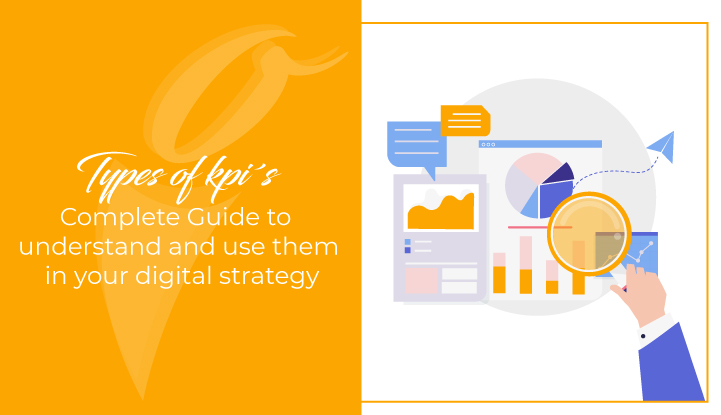Types of KPIs: Complete Guide to understand and use them in your digital strategy.

As digital marketing specialists, we understand the importance of KPIs (Key Performance Indicators) in any online business strategy. These KPIs are essential to measure the success and performance of a campaign or strategy, and provide valuable information for informed decision making. In this article, we will explore in detail the different types of KPIs and how they can help you better understand a topic or keyword. In addition, I will present examples and explanations of what KPIs are and how they are applied in the world of digital marketing.
Table of Contents
What are KPIs and why are they important?
Before we dive into the types of KPIs, it is essential to understand what they are and why they are essential in digital marketing. KPIs are specific metrics used to evaluate the performance of a strategy, campaign or activity against set objectives. These indicators provide a clear and quantifiable view of success or failure against business objectives.
TYPES OF KPIs
KPIs are more than just metrics; they are powerful tools that guide you. They are like beacons in the night, lighting the way to digital success. Learn about the variety of KPIs ranging from traffic acquisition to customer retention.
Traffic Acquisition KPIs:
Traffic Acquisition KPIs are critical to evaluating the effectiveness of strategies that drive visitors to your website or platform. Some key KPIs in this category include:
CTR (Click-Through Rate):
Indicates the ratio of people who clicked on a specific link to the total number of people who viewed it. A high CTR suggests that your content is relevant and engaging.
CPL (Cost Per Lead):
Measures how much it costs you to acquire a lead or potential customer. A low CPL indicates good lead acquisition efficiency.
Engagement KPIs:
Engagement KPIs measure audience participation and interaction with your brand. These KPIs are crucial to evaluate the effectiveness in creating meaningful connections with your audience:
Social Media Interaction Rate:
Calculate the percentage of followers who interact with your social media posts. The higher the rate, the greater the connection with your audience.
Time Spent on Website:
Indicates how long a user spends on your website. A longer dwell time suggests that your content is relevant and engaging.
Conversion KPIs:
Conversion KPIs evaluate the effectiveness of your strategy to convert leads into customers.They are essential to measure success at the crucial conversion stage:
Conversion Rate:
Shows the proportion of visitors who completed a desired action, such as making a purchase or filling out a form.A high conversion rate indicates effectiveness in persuasion.
ROI (Return on Investment):
Calculate the ratio between the return on investment and the cost of that investment. A positive ROI is essential to evaluate the profitability of your efforts in a marketing plan.
Retention and Loyalty KPIs:
These KPIs measure the satisfaction and loyalty of your customers, crucial elements for the long-term growth of your business:
Customer Retention Rate:
Evaluates the number of customers who return to buy again. A high retention rate indicates that your strategies are keeping customers satisfied.
Purchase Frequency:
Shows how often customers make purchases. A high purchase frequency indicates a solid relationship and strong loyalty.
Customer Service KPIs:
These KPIs focus on measuring customer satisfaction and customer perception of your customer service:
Net Promoter Score (NPS):
Evaluates customers’ willingness to recommend your company. A high NPS suggests good customer satisfaction and promotion.
Customer Satisfaction Score (CSAT):
Measures customer satisfaction after an interaction with your service. A high CSAT indicates that you are meeting customer expectations.
Conclusion:
Choosing and using the right KPIs is crucial in digital marketing. Each type of KPI provides valuable information about different aspects of your strategy. By measuring and analyzing these indicators, you will be able to make informed decisions and adjust your approach to continuously improve the performance and effectiveness of your digital marketing campaigns. Make the most of your KPIs and reach your goals!